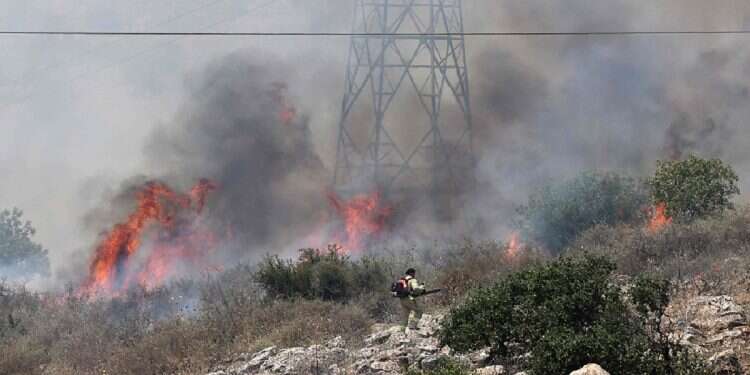A high-ranking Israeli official characterizes the escalating tensions with Hezbollah as a situation "on the precipice of conflict." In the wake of Monday night's cabinet meeting, which added the return of evacuated northern residents to the war's objectives, urgent security consultations are underway, with the very real possibility of war against Hezbollah on the table.
The security official noted that the "main goal of the Gaza war has been largely accomplished." The official added: "With the IDF's announcement of the [Hamas'] Rafah Brigade's defeat, effectively dismantling all Hamas brigades, resources are now available for a northern campaign," the source explained.
The approaching winter and onset of the rainy season are additional factors under consideration, as these conditions could potentially favor Hezbollah while complicating IDF operations. "Netanyahu recognized that failing to confront Hezbollah now could result in an Israeli setback. Consequently, he's set in motion preparations for this campaign, including overcoming resistance from Defense Minister Gallant and military leadership, who are particularly sensitive to American opposition to such action," the security official revealed.

The source suggests that the rumored intention to replace Defense Minister Yoav Gallant, who has thus far opposed action against Hezbollah, was a clear message to Gallant to fall in line or face dismissal. "I can confirm that Gallant was shaken by recent developments, and has subsequently aligned himself with the new direction, now preparing for potential action."
On the diplomatic front, Prime Minister Benjamin Netanyahu and Gallant separately conveyed to US envoy Amos Hochstein that "military action remains the sole viable option for facilitating the return of northern residents," as Gallant put it. Netanyahu emphasized that "while Israel values and respects US support, it must ultimately take necessary measures to ensure its security," signaling that Israel may not defer to the administration's unofficial preference to delay northern operations until after the US presidential elections.
These statements follow remarks by a senior US official at last week's MEAD conference, urging all efforts to reach an arrangement with Hezbollah. The official warned that a full-scale Israel-Hezbollah war could be averted and that such a conflict would exact a heavy toll on both sides. "We could see thousands, potentially tens of thousands of casualties. Infrastructure would suffer severe damage. Israel would struggle to decisively defeat Hezbollah and likely won't achieve all objectives. A protracted conflict would result in significant loss of life on both sides. Israeli northern residents would face prolonged displacement, and ultimately, such a war would conclude with an agreement similar to what's being proposed now. That's why we're pushing for this agreement at present."
However, Nasrallah once again rebuffed talks of an agreement yesterday, rendering Hochstein's visit fruitless. This confluence of events has led to what Jerusalem describes as a situation "on the precipice of conflict."




